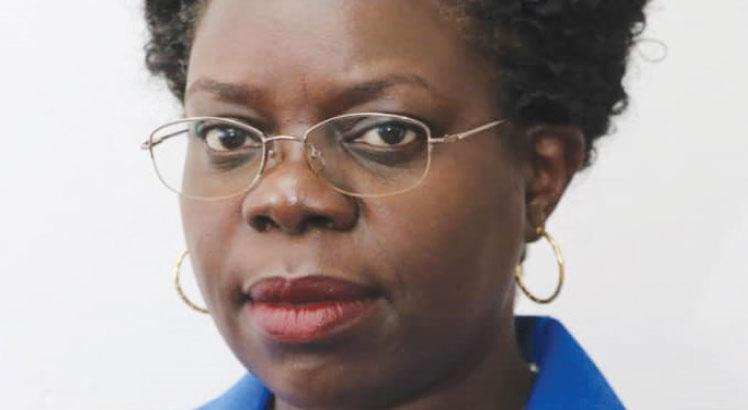Kunkuyu battles Macra board
 Malawi’s Information and Civic Education Minister Moses Kunkuyu is in another fight with the Macra Board following his directive that the authority resumes mobile licence negotiations with Lacell Private Limited.
Malawi’s Information and Civic Education Minister Moses Kunkuyu is in another fight with the Macra Board following his directive that the authority resumes mobile licence negotiations with Lacell Private Limited.
Lacell is a mobile phone firm that failed to impress the Malawi Communications Regulatory Authority (Macra) during licence application evaluations in a 2008 bid but with which, for inexplicable reasons, the previous board entered into negotiations despite scoring poorly.
The current Macra board, led by healthcare activist Martha Kwataine, is protesting the minister’s insistence that the authority licenses Lacell without another competitive process.
The minister, on the other hand, argues that the directive is in line with a new government policy on awarding of mobile phone licences.
The crux of the policy, according to a February 15 2013 letter from Kunkuyu to Macra director general Charles Nsaliwa, is that entry restrictions for new investors would be kept to a minimum.
Promote inward investment
He said the most important entry criteria would be the technical and financial capacity of the prospective operator to roll out the network.
The policy seeks to promote inward investment, thereby creating more jobs, fostering competition in the telecommunications industry and reducing the cost of mobile communication, said Kunkuyu.
Kunkuyu does not detail the specific criteria required by the new policy, but said it does not preclude the need to enforce strict time frames for licensed operators to roll out operations.
“In order to bring effect to the policy, and in order to stimulate competition, I hereby direct that immediate action should be taken to interest new operators into the Malawi market. Special consideration should also be given to actively interest those entities that have previously expressed interest to enter the Malawi market and had obtained authority to resume licence negotiations but such efforts were subsequently constrained by executive rather than legal fiat. In this regard, government has approved that [Macra] should immediately resume licence negotiations with Lacell Private Limited,” he said.
Seek the opinion of the ODPP
But Kwataine told Kunkuyu in a memo dated April 2 2013 reference MACRA/45-A/DG/jck that Nation on Sunday has seen, that the directive would create technical hitches for Macra.
Reads the memo: “In view of the foregoing, the board would like to reiterate that it has taken note of the directive and fully agrees with the need to promote inward investment into Malawi to promote delivery of better services.
“However, the authority would like to bring to your attention the following challenges that it faces in implementing the directive: Difficulties in assigning frequency and spectrum resources if the current diligent process of Invitation to Apply [ITA] is not adhered to; how to balance the financial and technical capacity assessment with government’s vetting process which is conducted by the Office of the President and Cabinet [OPC] to address national security interests; how to handle Lacell given that they failed during the technical and financial assessment stage, the irregularities that surrounded the award of a licence to a failed applicant and later cancellation of the award. It might be prudent for government and the authority to seek the opinion of the ODPP in this matter since this is a procurement issue;
“How the authority is going to treat other entities that have previously expressed interest to enter the Malawi market at same time as Lacell Private Limited such as Expresso Telecom Group Ltd, Viva Cell Africa Limited, Comium Services Sarl, Forward Ventures Limited, Millicom; likelihood of legal suits from applicants who applied for licences at the same time with Lacell Private Limited as indicated above.”
In the memo, Kwataine told Kunkuyu that during a meeting her board held on April 2 2013 in Blantyre, it noted that the current entry procedures start with an advertisement by Macra after consultations with government.
Macra board resolutions
This, she said, is followed by an assessment of the applications at two levels: technical and financial assessment within Macra and security assessment by government.
Kwataine also told the minister that at the meeting, the board made the following resolutions:
—That the board is in agreement with the need to keep entry restrictions of new investors to a minimum and promote inward investment into Malawi.
—That the current application assessment procedures that Macra Board follows internally use standard criteria used by regulators all over the world. The criteria represent minimum standards that enable Macra to effectively assess the technical and financial viability of the prospective operators. This includes technical and financial capacity of the prospective operator, ownership and control, business plan, operational plans, universal access and universal service.
—That minimising of entry barriers that are political in nature during the assessment of the applicants can better be handled at the Ministry of Information or OPC level since security vetting of applicants is done by government itself.
—That the case of Lacell arose after the company failed to qualify during the technical and financial assessment stage.
—That government should be humbly advised of the challenges that the authority may face in implementing the new policy directive.
But Kunkuyu, in a memo responding to Kwataine’s April 2 letter, directs board members to comply with the directive or face consequences.
He also wondered why some members of the previous board and management who are also in the current one have joined others to resist Lacell when they had, during their earlier tenure, resolved to enter into licence negotiations with Lacell.
Kunkuyu warned members of the board and management who participated in the 2008 evaluation of Lacell and are “now questioning their own decision” that government could review their positions in the board.
“I would consequently advise the board members and management who were in office then, to stop making reference to the level of scores during the evaluation, because this is immaterial at this time. What is material is that Lacell was invited to license negotiations, through the public media, and the company cannot be blamed for pursuing its rights which had become public knowledge at the time.
“It is necessary at this time that those members who took part in the preliminary process and are now questioning their own decision should consider how this position reflects on the reputation and potential for government to put trust in their future performance as custodians of corporate governance for such an important entity as Macra. Government may also be forced to review whether such board members and management involved in the 2008 process have the moral justification to continue to be associated with the work of the regulator,” said Kunkuyu in a letter dated April 5 2013.
He also quashed the board’s argument that Lacell Limited ranked fifth out of six companies in a 2008 evaluation.
“…The continued reference to the fact that Lacell was ranked No. 5 out of the six applicants that were assessed in 2008 does not hold water as basis for ignoring the company’s appeal,” he said in the memo.
Further reads his letter: “For this reason, and having taken into consideration your valuable and positive views, I hereby direct that the authority must immediately resume licence negotiations with Lacell Limited, in any case, not later than week beginning 8th April 2013. Let your management be advised accordingly that this directive is not negotiable,” reads Kunkuyu’s memo.
The appeal the firm made
The minister says government’s decision on Lacell Limited is made solely on the basis of the appeal the firm made to government “whose wide consultations gave rise to the instruction and policy directive that I issued to the authority.”
“May I hasten to add that it is not in the interest of government at this time to speculate on the place and situation of the other companies that you have listed and did not make any appeal or representations to government and, therefore, has no bearing whatsoever on the status and instructions pertaining to Lacell Limited,” reads the memo.
In an interview last week, Kunkuyu refused to answer questions on the directive.
“Government is not an NGO and wherever you see institutional information in the media it smacks of lack of professionalism on governance issues and respect for institutional ethics,” he said.
Kwataine was not available for comment. She was reportedly in the USA.
In January this year, Kwataine was also involved in a duel with Kunkuyu over the contract renewal for Nsaliwa, the Macra director general.
Government renewed Nsaliwa’s contract, but the board protested the decision, saying the post should have been advertised.





